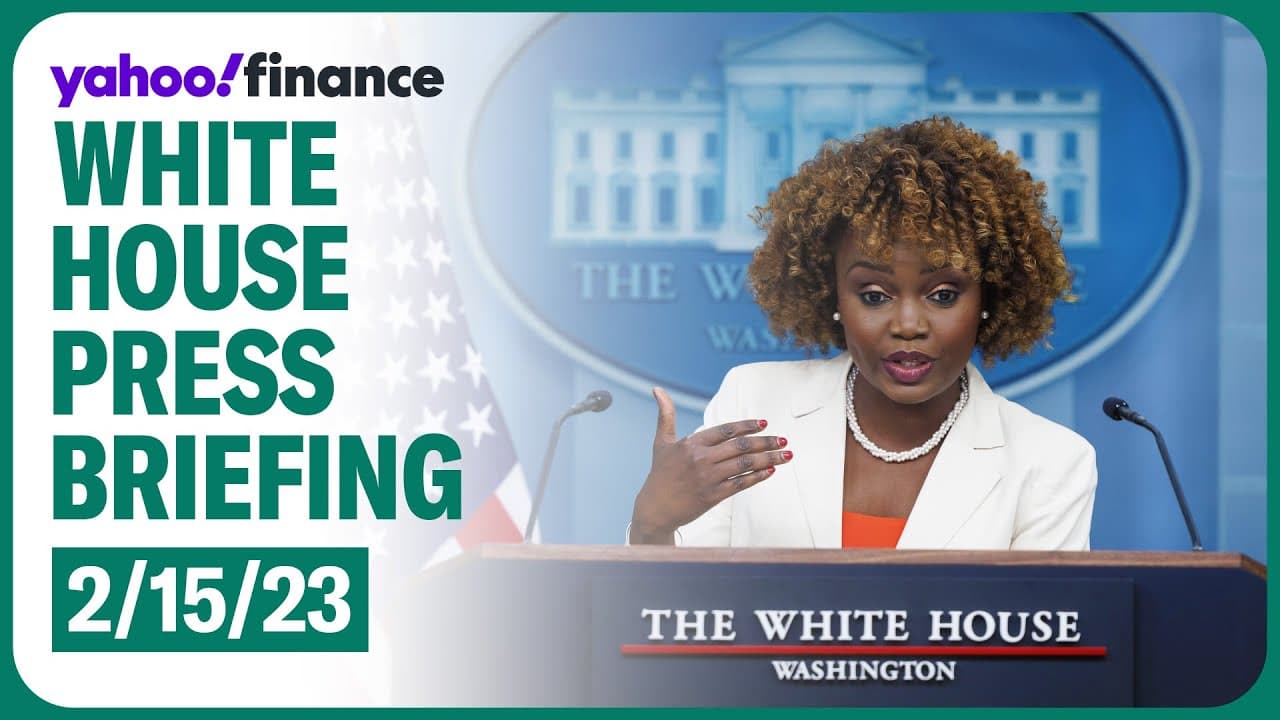White House press secretary Karine Jean-Pierre holds briefing
16 Feb 2024 (almost 2 years ago)

President Biden's Response to Shootings and Gun Violence
- President Biden expressed condolences for the victims of the Kansas City shooting and condemned other shootings in the US.
- He called for Congressional action to address gun violence, including banning assault weapons and high-capacity magazines, requiring safe storage of guns, passing a national red flag law, enacting universal background checks, and investing in violence prevention programs.
- The President emphasized the need for stricter gun control measures and highlighted his executive actions and bipartisan efforts to address gun violence.
President Biden's Meeting with Polish Leaders
- President Biden announced that he will welcome President Duda and Prime Minister Tusk of Poland to the White House on March 12.
- The meeting will focus on support for Ukraine, energy security, economic relations, and shared democratic values.
- The invitation is to celebrate Poland's 25th anniversary in NATO and acknowledge their support for Ukraine.
Concerns about Russia's Anti-Satellite Capability
- The National Security Advisor confirmed the existence of an anti-satellite capability that Russia is developing.
- The capability is not active and does not pose an immediate threat, but the Biden administration is taking it seriously.
- The administration is engaging in diplomatic efforts with Russia, allies, and partners to address the situation.
- The administration is concerned about the potential impact of the capability on satellites that provide essential services.
Challenges in Providing Artillery Ammunition to Ukraine
- The fighting in Ukraine is intense, particularly in Bakhmut, where Ukrainian forces are running out of artillery ammunition.
- The US is unable to provide Ukraine with the necessary artillery shells due to the delay in passing the National Security Supplemental Bill by Congress.
- The cost of inaction by Congress is significant and could lead to further losses for Ukraine.
US Response to Reports of Election Irregularities in Pakistan
- The US shares concerns about reports of intimidation and irregularities in the Pakistani elections.
- The White House is closely monitoring the vote counting process and international monitors are still examining the tallies.
Biden Administration's Engagement with Indonesia and Hamas
- The US will congratulate the Indonesian election winner at the appropriate time and respects the Indonesian people's vote.
- The Biden administration believes Hamas is a terrorist organization and disagrees with the UN Aid agency Chief's statement.
US-Russia Engagement on Anti-Satellite Capability
- The Biden administration was in the process of downgrading and declassifying information about Russia's anti-satellite capability when it was leaked to the public.
- The administration is engaging with Russia and allies and partners to discuss the capability and mitigate any potential risks.
- The administration does not trust Russia, but it is engaging with them in order to verify information and reduce the risk of conflict.
Recent Attacks on Indian Students in the US
- Recent attacks on Indian students and Indian American students in the US have raised concerns among the Indian community.
- The Biden administration is working with state and local authorities to prevent and disrupt such attacks.
US Commitment to the Outer Space Treaty
- The US remains committed to the Outer Space Treaty and takes its obligations under the treaty seriously.
- The administration is engaging with Russia and allies on the matter.
White House Response to Malmstrom Air Force Base Lockdown
- The White House is aware of the lockdown at Malmstrom Air Force Base in Montana and is looking into the situation.
US Concern over Venezuelan Government's Decision
- The US is concerned about the Venezuelan government's decision to order the local UN office on human rights to close and is monitoring the situation.
President Biden's Support for Unions and Manufacturing Jobs
- President Biden supports collective bargaining and believes that unions build the middle class.
- He is committed to bringing manufacturing jobs back to the US and creating good-paying jobs.
Student Debt Relief and Legal Challenges
- The White House is confident that the new rule-making approach for student debt relief will hold up in court.
- The president is committed to providing relief to borrowers and will continue to explore additional ways to do so.
President Biden's Visit to East Palestine, Ohio
- President Biden will visit East Palestine, Ohio, to hear directly from the community affected by the recent train derailment.
- The administration is holding Norfolk Southern accountable and continues to work on the ground through various federal agencies.
White House Press Briefing on Various Topics
- The White House Press Secretary discussed gun violence, the East Palestine situation, Congressional inaction, high crime rates in the District of Columbia, Chinese migrants at the southern border, and student loan forgiveness.
- She emphasized the need for Congressional action on gun control, criticized the House of Representatives for going on recess, and highlighted the administration's efforts to address various issues.
Congressional Budget Office's Projections on Student Loan Forgiveness
- The Congressional Budget Office director testified that the current fiscal policy is unsustainable and that changes to the student loan forgiveness program would